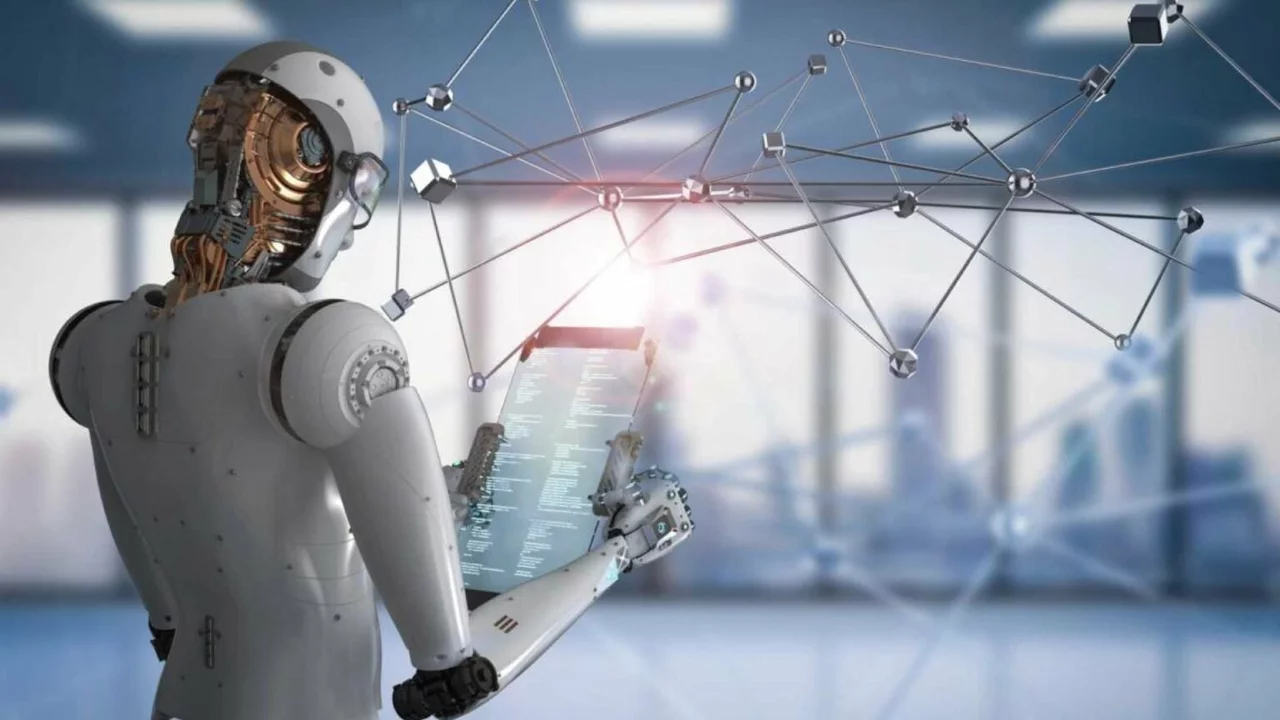Artificial Intelligence (AI) has emerged as a leading technology in recent years, revolutionizing various industries and reshaping the way we live and work. From healthcare to finance, manufacturing to marketing, AI’s impact is profound and far-reaching. In this article, we’ll delve into the reasons why AI stands out as a forefront technology, exploring its applications, advantages, challenges, and the future it holds.
Defining Artificial Intelligence (AI)
Artificial Intelligence refers to the simulation of human intelligence in machines that are programmed to think, learn, and problem-solve like humans. It encompasses a wide range of technologies, including machine learning, natural language processing, and robotics.
Brief History of AI
AI traces its roots back to the 1950s when the term was coined. Since then, there have been significant advancements in AI research and development, leading to its widespread adoption across various sectors.
Applications of AI
AI finds applications in diverse fields, including:
Healthcare
In healthcare, AI is used for diagnosis, personalized treatment plans, drug discovery, and medical imaging analysis, improving patient outcomes and reducing healthcare costs.
Finance
In the finance industry, AI algorithms analyze vast amounts of data to detect fraud, manage risks, automate trading processes, and provide personalized financial advice to customers.
Marketing
AI enables marketers to analyze consumer behavior, personalize marketing campaigns, optimize advertising strategies, and predict market trends, enhancing customer engagement and increasing ROI.
Manufacturing
In manufacturing, AI-powered robots and automation systems streamline production processes, optimize supply chain management, ensure quality control, and minimize downtime, leading to increased efficiency and cost savings.
Advantages of AI
AI offers several advantages, including:
Efficiency
AI automates repetitive tasks, streamlining workflows, and increasing productivity. It allows businesses to operate more efficiently and allocate resources effectively.
Accuracy
AI algorithms analyze data with precision, minimizing errors and inconsistencies. They provide reliable insights and predictions, enabling informed decision-making.
Automation
AI-driven automation reduces manual labor and human intervention in various processes, saving time and reducing operational costs. It also eliminates mundane tasks, allowing employees to focus on more creative and strategic endeavors.
Challenges and Concerns
Despite its transformative potential, AI presents some challenges and concerns, including:
Job Displacement
The widespread adoption of AI and automation may lead to job displacement, as machines replace human workers in certain tasks and roles. This calls for reskilling and upskilling initiatives to ensure a smooth transition in the labor market.
Ethical Considerations
AI raises ethical questions regarding privacy, security, and accountability. Issues such as data privacy, algorithmic bias, and autonomous decision-making require careful regulation and ethical frameworks to mitigate potential risks.
Bias in AI Algorithms
AI algorithms are susceptible to biases inherent in the data they are trained on, leading to unfair or discriminatory outcomes. Addressing algorithmic bias requires diverse and representative datasets, along with robust bias detection and mitigation strategies.
Future of AI
Despite the challenges, the future of AI looks promising, with potential advancements in:
Potential Advancements
AI technologies such as deep learning, reinforcement learning, and quantum computing hold the promise of solving complex problems and achieving feats previously thought impossible.
Integration into Daily Life
AI is poised to become increasingly integrated into daily life, powering smart homes, autonomous vehicles, personalized healthcare, and virtual assistants, enhancing convenience and improving quality of life.
Conclusion
In conclusion, artificial intelligence has emerged as a leading technology, driving innovation and transformation across various industries. Its applications span healthcare, finance, marketing, manufacturing, and beyond, offering numerous advantages such as efficiency, accuracy, and automation. However, AI also presents challenges and concerns, including job displacement, ethical considerations, and bias in algorithms. Despite these challenges, the future of AI holds great promise, with potential advancements and increased integration into daily life.
FAQs
- Is AI only relevant for large corporations, or can small businesses benefit from it too?
AI technologies are becoming increasingly accessible and affordable, making them suitable for businesses of all sizes. Small businesses can leverage AI for tasks such as customer support, marketing automation, and data analysis to improve efficiency and competitiveness.
- How can AI help address environmental challenges and promote sustainability?
AI can be used to analyze environmental data, optimize resource management, and develop sustainable solutions for energy, agriculture, and transportation. By harnessing AI technologies, we can make more informed decisions and mitigate environmental impact.
- What steps can be taken to mitigate the risks of job displacement due to AI and automation?
To mitigate job displacement, it’s essential to invest in education and training programs to equip workers with the skills needed for the jobs of the future. Additionally, fostering a culture of lifelong learning and supporting workforce transition initiatives can help individuals adapt to changing labor market demands.
- How can businesses ensure the ethical use of AI in their operations?
Businesses can ensure the ethical use of AI by prioritizing transparency, accountability, and fairness in their AI systems. This includes regularly auditing algorithms for bias, obtaining informed consent for data usage, and establishing clear guidelines for AI development and deployment.
- What role can governments play in regulating AI to ensure responsible use and prevent misuse?
Governments play a crucial role in regulating AI to ensure responsible use and prevent misuse. This includes establishing clear guidelines and standards for AI development, promoting transparency and accountability in AI systems, and enforcing regulations to address potential risks and harms associated with AI technologies.


